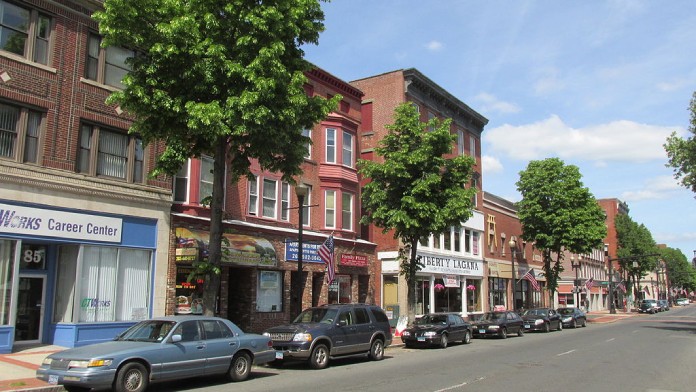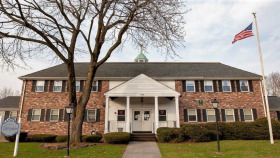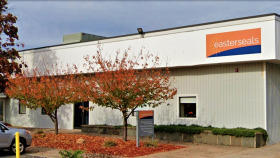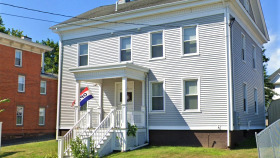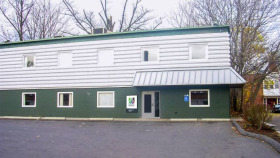Alcohol and Drug Abuse Statistics in Meriden, CT
Like much of the rest of the country, Connecticut is struggling with the ongoing “opioid epidemic.” For that reason, Meriden and other cities are working to combat rising rates of addiction and overdose due to both prescription and street opioid substances, particularly the highly addictive and often lethal fentanyl and its illegally manufactured analogs.1 But Connecticut drug task forces are also grappling with an influx of rarely seen new drugs such as the animal tranquilizer xylazine.
Here are a few more statistics about drug and alcohol use in Meriden and surrounding areas:1,3
In 2021, 93% of overdose deaths involved opioid drugs.
In 2020, the percentage of overdose deaths involving fentanyl jumped by 85%.
In the same year, alcohol accounted for 37% of hospital admissions due to substance overdose.
Levels of Substance Abuse Care
Various levels of addiction treatment are available to meet different needs. Some Connecticut residents start with inpatient treatment and work their way through the continuum of care, while others begin their recovery at a less-intensive level.
Medical Detox
Detox is often a first necessary step before you can begin other formal treatment programs. It is the process of safely and comfortably removing drugs or alcohol from your system. It occurs in a supervised setting, such as a hospital or inpatient rehab facility.
Inpatient Drug and Alcohol Rehab
During residential treatment, you live at a rehab facility and receive 24/7 supervised care. Treatments typically include individual and group therapy, as well as medication and recreational therapy.
Partial hospitalization programs (PHPs)
PHPs allow you to receive treatment at a hospital while living at home. Services are similar to inpatient programs, but you return home during non-treatment times.
Intensive Outpatient Programs (IOPs)
IOPs allow you to attend counseling several days each week while spending the rest of your time fulfilling other obligations such as work or school.
Standard Outpatient
Standard outpatient is the least intensive treatment option. It involves one to two hours of treatment per week. This low-supervision level is appropriate for highly motivated people with a strong support system.
Relapse Prevention
Relapse prevention, also referred to as aftercare, begins once you complete a rehab program. It includes ongoing support through continued therapy, support groups, and other care programs.
How to Pay for Substance Addiction Treatment in Meriden, Connecticut
Private Insurance
The Mental Health Parity and Addiction Equity Act requires all insurance providers to cover substance abuse treatment to some extent. Connecticut residents should contact their provider to learn about specific coverage, including required copays or deductibles.
Connecticut Medicaid
Medicaid is a government program that pays for health services for low-income individuals. The Medicaid programs in Connecticut are HUSKY A, HUSKY C, and HUSKY D. Children and their caregivers with a family income of less than 185% of the poverty level, as well as pregnant women whose income is less than 250% of the poverty level are eligible for HUSKY A. Individuals who are aged, blind, or disabled may be eligible for HUSKY C. Single adults whose income is below 56% of the federal poverty level may qualify for HUSKY D.2 Under these programs, Connecticut residents can receive coverage to pay for substance abuse treatment services.
Connecticut Medicare
Connecticut Medicare is the federal health insurance program that provides coverage for Connecticut residents who are 65 and older and for certain disabled residents. If you are eligible for Railroad Retirement or Social Security benefits, you qualify for Medicare. You can use this program to cover the cost of addiction treatment services, however, not all rehab facilities accept this method of payment.
Sliding Scale Rehabs
Sliding scale rehabs charge each Connecticut resident what they can afford based on their income. Proof of income is usually required to qualify. These options are not always advertised, so it’s important to inquire about them.
TRICARE in Connecticut
Connecticut TRICARE (East region) is a government program that offers health insurance coverage to military personnel, veterans, and their dependents. TRICARE coverage includes addiction treatment services, such as rehab and medication-assisted treatment.
IHS-Funded Drug Rehabs
Drug rehab services funded by the Indian Health Service provide free addiction treatment to Alaskan Natives and Indigenous people in the U.S.

Traveling to and Within Meriden, CT
If you’re looking to receive help through alcohol and drug rehab in Meriden, or if you’re visiting a friend or loved one who’s seeking alcohol and drug addiction treatment in the area, you might like to know a few things about the city and its amenities. Here are a few facts about where to stay, what to do, and how to get around in Meriden and New Haven County:
- Meriden is served by several interstate highways, including the I-91 between Hartford and New Haven.
- The Wilbur Cross Parkway connects to New Haven and New York City.
- Meriden’s nearest commercial airports include Hartford Barnes Airport, 15 miles away, and Tweed New Haven International Airport, 19 miles away.
- Meriden is connected to the Connecticut Transit System, with buses running regularly from points throughout the city.
- Meriden has all major hotel and motel chains, including Days Inn, Quality Inn & Suites, and Comfort Inn.
- The city of Meriden has many historical monuments and museums, as well as several parks and trails along the Quinnipiac River.
Connecticut Alcohol and Drug Laws
Connecticut policy makers have passed the following laws to govern substance use and abuse and protect its citizens:1
Naloxone Access: In 2018, Connecticut lawmakers increased access to Naloxone (an opioid overdose antidote). Pharmacists and practitioners in Connecticut can distribute this medication to public organizations and provide it to people without a prescription. The end goal is to prevent deaths from overdose.
Good Samaritan Laws: These laws protect Connecticut residents who seek or receive emergency medical care for an overdose. It gives them immunity from legal repercussions for the use or possession of illegal substances, to encourage them to call emergency services in the event of a possible overdose.
Health Insurance Laws: As of 2017, Connecticut law requires most group and individual insurance policies to provide medically necessary detox and other recovery services to those who are diagnosed with substance use disorder. The laws also prohibit insurance policies from requiring prior authorization for opioid antagonists.
Limits on Opioid Drug Prescriptions: Since 2017, Connecticut lawmakers have passed laws to reduce the maximum quantity of opioids that can be prescribed to minors. The laws also increase the amount of education provided to patients about opioid risks.
Resources
- State of Connecticut Department of Mental Health and Addiction Services. (2022). Triennial State Substance Use Plan 2022.
- Department of Health and Human Services, City of Meriden. (2022). Opioid and Substance Abuse Prevention.
- Connecticut Department of Public Health. (2022). Drug Overdose Monthly Report 2019-2022.

